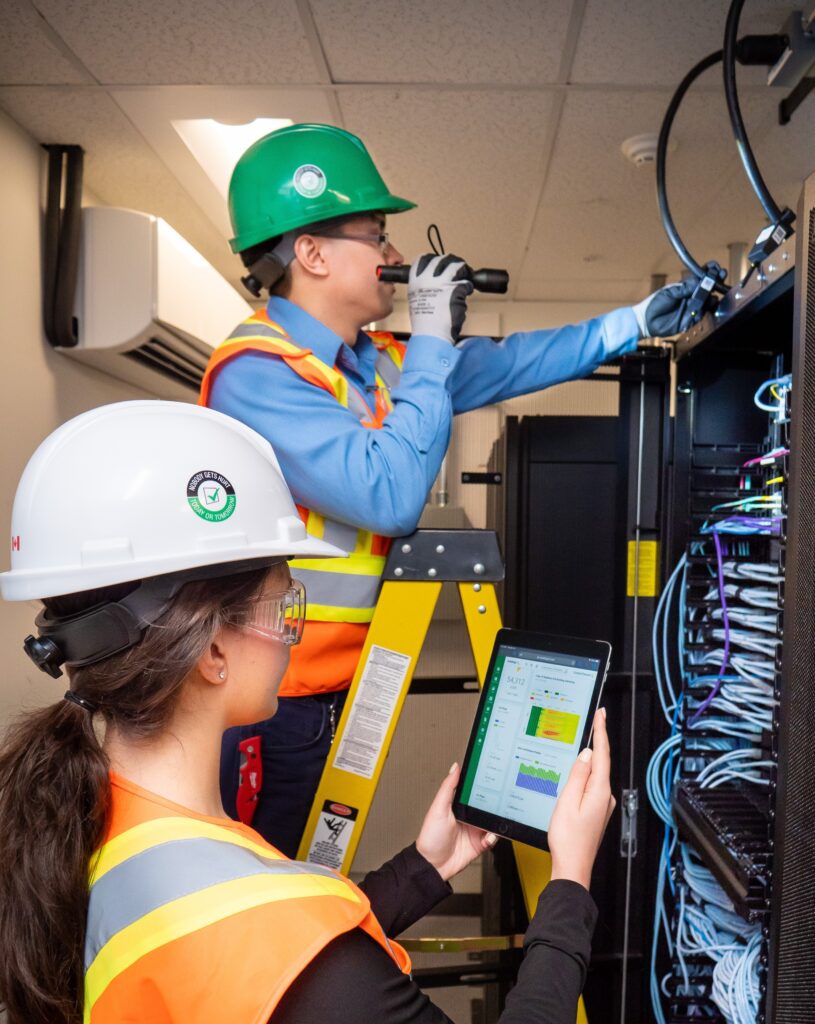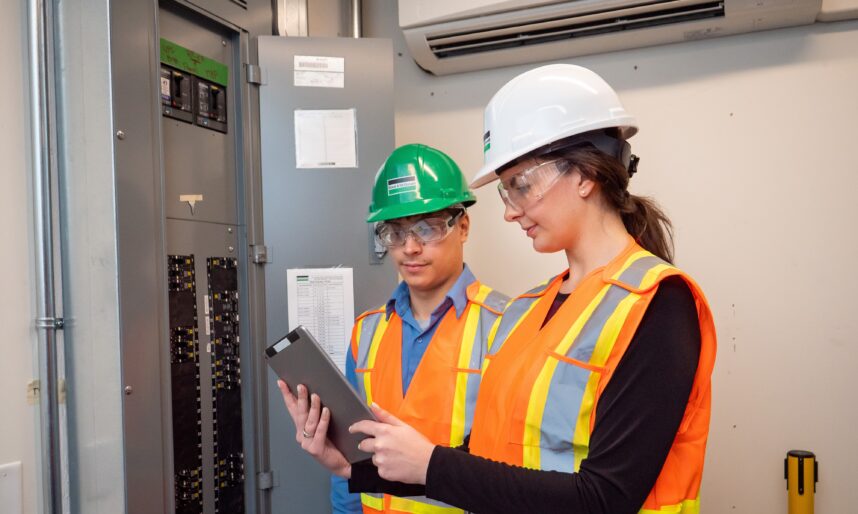Unless you’re an engineer or a scientist, the world of Artificial Intelligence (AI) is a mind-boggling place where the possibilities are endless. Experts at the forefront of this rapidly evolving technology are amazed by what it can do, and some are even raising concerns over its potential to outsmart humans. Still, as language-based platforms like ChatGPT make headlines of a foreboding nature, there is no denying AI’s immeasurable value. The way Dennis Martini, Director, Business Development for FM at Black & McDonald, sees it: AI has been a game-changer for the facility management sector—and this is only the beginning.
“AI and Machine Learning can process massive amounts of data quickly, so buildings can operate and run much more efficiently,” he said. “AI-enabled technologies are being applied to make buildings smarter, healthier, and safer—not just in terms of energy and overall performance, but also in terms of things like security. From facial recognition software to platforms that can detect if someone is carrying a weapon, we are seeing a lot of improvements and tools in the built space. Of course, it also helps reduce operating costs, which is always a goal.”
Black & McDonald’s Energy & Sustainability Group first started exploring the application of AI-enabled platforms backin 2018 as part of its turnkey service to help clients achieve (and exceed) their energy management goals. Specifically, it has enabled the accurate measurement and analysis of data and information, resulting in numerous efficiencies enhanced by the ability to use historical trends to optimize performance and inform future decisions. Today, whether it’s eliminating mundane data-entry, improving building security, or helping flag potential maintenance issues, the uses for AI in facility management are continually expanding.
“We’re still trying to get our minds around what all AI can do,” Martini said. “We’re starting to get away from traditional, planned maintenance and move toward predictive maintenance and fault detection—meaning, our buildings will be able to tell us when something is wrong and pre-empt a failure. Also, there’s a huge amount of data being generated through AI, and we’re only just beginning to find ways to put it to use.”
Using AI-driven technologies, facility managers can be alerted to a spectrum of issues as they arise, including leak detection, system errors, or notifying the facility manager when a filter needs to be changed. In theory, AI could also create the work order, dispatch the right resources, change system setpoints, and maybe even fix the problem.
“While most new buildings are designed with AI-enabled or IoT-enabled technologies already in place, older buildings can be retrofitted to leverage some of the latest tools and solutions,” Martini said. “Nowadays we can go in and add new platforms and software to existing building automation systems, making them smarter and their data more usable. It’s really a brave new world, so to speak.”
For large language-based AI platforms, the possibilities are equally intriguing. According to Martini, these might include everything from writing exhaustive scope documents to fulfilling RFPs, to other laborious tasks known to be a drain on human resources. The good news is, he believes AI will never displace the need for real people.
“We’ll always need someone to turn wrenches and make physical adjustments,” he said. “In fact, as AI develops, I think it will help attract more younger people to the field—people less interested in pushing paper and more focused on analyzing data and exploring and applying emerging technologies. All positive stuff!”
Positive—and powerful. As facility owners continue to seek ways to lower their carbon footprint and prolong the life of their assets and equipment, AI-enabled controls and smart technologies are pushing the boundaries of what can be achieved. Not too long ago, the “Internet of Things” (IoT) was a concept just emerging, referring to any device or system that can connect and exchange data with other systems over a network. Now the technology is ubiquitous, as are dashboards that offer real-time energy readings.
“Smart building features and AI driven platforms are developing rapidly, and with each new iteration we are seeing greater benefits,” Martini said. “Facility managers are capable of making better, more informed decisions in real time while capturing data to drive meaningful change.”
In short, the power and pace of smart building technology is accelerating, and that power is grounded in analytics. As Martini sums it up, “The more data we capture and use to our advantage the more rewards we will reap for our buildings. It’s win-win.”
 TOP 5 Benefits of AI-enabled technologies:
TOP 5 Benefits of AI-enabled technologies:
- Optimized building performance and improved asset reliability thanks to real time data and analytics that result in actionable tasks or adjustments;
- Lower operating costs thanks to a condition-based approach to maintenance and operations, and enhanced reporting that gives visibility into multiple layers of previously disparate technologies and systems;
- Improved occupant comfort thanks to smarter controls and the ability to sense what’s going on in a building at each moment with respect to occupancy, usage, and the environmental conditions outside;
- Energy, water, and waste reduction, given AI can analyze data from various sources, such as sensors, meters, and weather forecasts, to identify patterns and optimize building systems accordingly;
- Fulfillment of ESG commitments due to AI’s ability to automate the collection and reporting of sustainability data, such as Scope 1, 2 and 3 Emissions data. This can help buildings track their sustainability performance, identify areas for improvement, and demonstrate compliance with ESG reporting requirements.
To find out more about the benefits and applications of AI in facilities management, visit: www.blackandmcdonald.com




